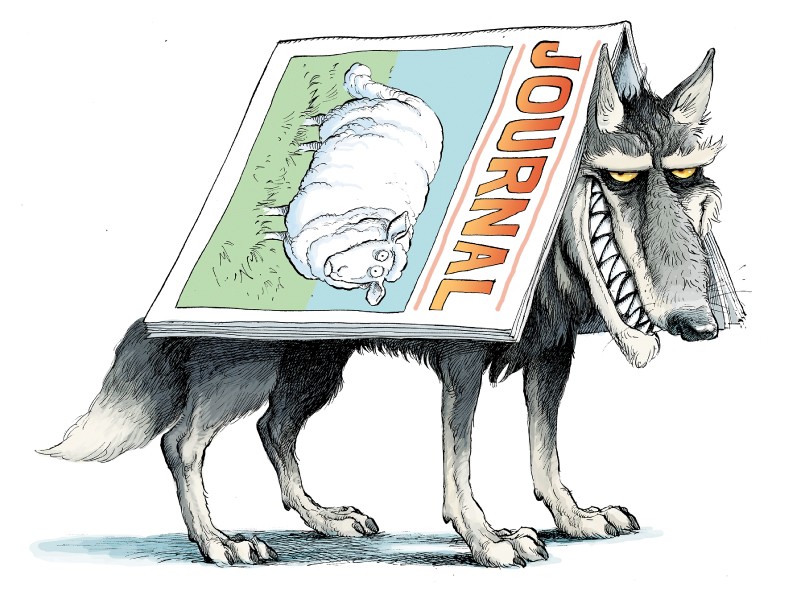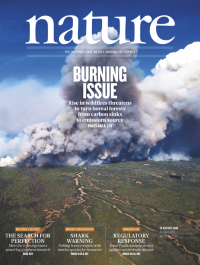Archive for refereeing
Bye’ ometrika
Posted in Books, pictures, Statistics, University life with tags academic publisher, associate editor, Biometrika, Biometrika Trust, commercial editing, editor, large-scale statistical learning, peer review, refereeing, statistical inference, statistical machine learning, Statistics on February 1, 2024 by xi'ancan you spare a dime? [or rather 113,900?]
Posted in Books, pictures, Travel, University life with tags academic journals, Iceland, India, króna, Nature, peer review, public funding, publishing fees, refereeing, Springer Nature on December 7, 2020 by xi'an Just read the announcement in Nature of 24 November that
Just read the announcement in Nature of 24 November that
Publisher Springer Nature has announced how scientists can make their papers in its most selective titles free to read as soon as they are published.
which is presented as a great advance to make scientific papers available for all to read. The catch is that there is no free lunch, obviously, as the author(s) have to pay Springer a 1,514,324.68 krónur charge for immediate open access! The Nature article does mention the issue obviously, as this is such a huge amount of money that it makes publishing under such conditions inaccessible for all academics but those with sufficient funding grants. It also mentions an alternate scheme contemplated by some Nature outlets to introduce “a non-refundable fee of €2,190 to cover an editorial assessment and the peer-review process.” None of the fee going to reviewers, apparently. This “evolution” (?!) is driven by the EU Plan S for making scientific publications available to all, but it even more crucially calls for a radical reassessment of publishing policies for research that is publicly funded and publicly reviewed, then paid again by publicly funded libraries and institutions. Even more radical than India’s push for `One nation, one subscription’.
Nature on predatory journals
Posted in Books, University life with tags Nature, OMICS Publishing Group, predatory journal, predatory publishing, refereeing on January 24, 2020 by xi'an A (long) comment published in Nature this week studies the impact of predatory journals, with a definition (made by the 32 authors of the comment and 9 others at a special meeting in Ottawa) of what constitutes a predatory journal.
A (long) comment published in Nature this week studies the impact of predatory journals, with a definition (made by the 32 authors of the comment and 9 others at a special meeting in Ottawa) of what constitutes a predatory journal.
“Predatory journals and publishers are entities that prioritize self-interest at the expense of scholarship and are characterized by false or misleading information, deviation from best editorial and publication practices, a lack of transparency, and/or the use of aggressive and indiscriminate solicitation practices.”
The article discusses each term in the definition, terms that remain vague (like what’s a “deviation from best”? A terrible website? May be due to English not being the first language of the journal editors…). In my opinion, the main criterion is the “aggressive and indiscriminate solicitation” and a lack of actual peer review, which can be easily detected when the paper is accepted within a very short time period. (Which is not to state that journals with a very quick rejection time should be a priori considered as predatory!) High publishing fees are certainly part of the predatory landscape but difficult to detect from established journals, even those backed by national or international societies. My only experience with predatory “publishers”, beyond the constant flow of proposals to send a paper, to edit a special edition and so forth, is a paper sent to a journal with the same title as a regular (Elsevier) journal, modulo a permutation!, and a threat of legal action from another source, which I described as “predatory” for proposing to write a general public paper in their glossy magazine. For the first occurrence, the paper was accepted within a day, we never signed any copyright form, and despite requests to withdraw the paper, it almost immediately got published. Even though we never paid the requested fees.
“Efforts to counter predatory publishing need to be constant and adaptable. The threat is unlikely to disappear as long as universities use how many publications a scholar has produced as a criterion for graduation or career advancement. The publish-or-perish culture, a lack of awareness of predatory publishing and difficulty in discerning legitimate from illegitimate publications fosters an environment for predatory publications to exist. Predatory journals are also quick to adapt to policies and measures designed to foil them.”
It certainly feels impossible to completely counter predatory actions, especially when some researchers seek such publications, but detecting some could be achieved by sending decoys to them, in the form of low-content pseudo-articles that could not pass any serious assessment by a genuine referee. Because no publication is intended, the same decoy could be used over and over by the society initiating the action…
No review this summer
Posted in Books, Statistics, University life with tags Andrew Gelman, final exam, forum, geology, København, Read paper, refereeing, UCL, unbiased MCMC on September 19, 2019 by xi'an
Another entry in Nature mentioned the case of two University of København tenured professors in geology who were fired for either using a private email address (?!) or being away on field work during an exam and at a conference without permission from the administration. Which does not even remotely sound like a faulty behaviour to me or else I would have been fired eons ago..!
open reviews
Posted in Statistics with tags brutalism, cross validated, ICLR, Peer Community, proceedings, refereeing, review on September 13, 2019 by xi'an When looking at a question on X validated, on the expected Metropolis-Hastings ratio being one (not all the time!), I was somewhat bemused at the OP linking to an anonymised paper under review for ICLR, as I thought this was breaching standard confidentiality rules for reviews. Digging a wee bit deeper, I realised this was a paper from the previous ICLR conference, already published both on arXiv and in the 2018 conference proceedings, and that ICLR was actually resorting to an open review policy where both papers and reviews were available and even better where anyone could comment on the paper while it was under review. And after. Which I think is a great idea, the worst possible situation being a poor paper remaining un-discussed. While I am not a big fan of the brutalist approach of many machine-learning conferences, where the restrictive format of both submissions and reviews is essentially preventing in-depth reviews, this feature should be added to statistics journal webpages (until PCIs become the norm).
When looking at a question on X validated, on the expected Metropolis-Hastings ratio being one (not all the time!), I was somewhat bemused at the OP linking to an anonymised paper under review for ICLR, as I thought this was breaching standard confidentiality rules for reviews. Digging a wee bit deeper, I realised this was a paper from the previous ICLR conference, already published both on arXiv and in the 2018 conference proceedings, and that ICLR was actually resorting to an open review policy where both papers and reviews were available and even better where anyone could comment on the paper while it was under review. And after. Which I think is a great idea, the worst possible situation being a poor paper remaining un-discussed. While I am not a big fan of the brutalist approach of many machine-learning conferences, where the restrictive format of both submissions and reviews is essentially preventing in-depth reviews, this feature should be added to statistics journal webpages (until PCIs become the norm).
![I am retiring today from co-editing Biometrika. It has been an exciting if somewhat stressing six years, with a constant flow of submissions to keep under control [2023 saw a record 580 submissions!], a task made somewhat easier during the COVID lockdowns as I could manage my schedule. I do feel most honoured to have been part of the Biometrika editorial board as I consider the journal a very top publication in statistics, with a highly elegant style. I am most sincerely grateful for the support of my co-editors, Paul Fearnhead and Omiros Papaspiliopoulos, the help provided by the managing editor, Rosalind Gesser, and for the hard and almost universally efficient work of the associate editors in handling the papers I sent them. Last but not least, I thank the authors for their near-universal understanding of our necessity to reject a large fraction of the submissions from an early stage, towards keeping the load of both associate editors and reviewers manageable. Farewell!](https://xianblog.files.wordpress.com/2019/08/m_biomet_106_2cover.png?w=203&h=285)
